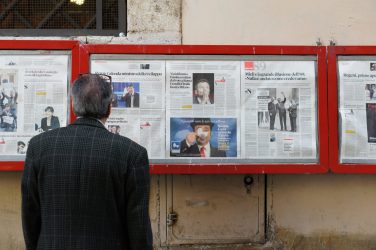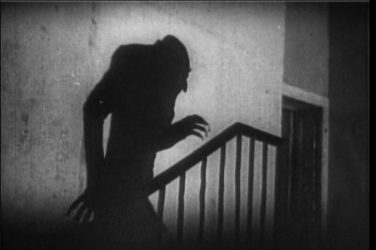E&M author Fernando Hortal Foronda retells the story of the man behind DG MEME – a social media account aimed at engaging Europeans in EU affairs through humour. With over 22,000 followers on Facebook and nearly 11,000 on Twitter, the “one and only Directorate-General for Memes and Satire” is a mainstay in many social media feeds in Brussels and beyond.
Never-ending philosophical, sociological, journalistic, and political conversations on the European public sphere or – lack thereof – focus on the absence of genuinely European mass media, political debate, and political contestation. Despite the fundamental role that humour, satire, and parody play in any public sphere, these elements are often forgotten in these discussions. Anyone who takes rhetoric seriously will acknowledge that communication does not start with having something to say that’s worth listening to, but with gaining the attention of an audience. In other words, a communicator knows that a great idea is worth nothing if nobody is willing to listen to it.
The story of one of the most prominent satirists of the EU starts with the realisation that there was something that needed to be said yet remained unspoken: the EU is great in may ways, but the institutions have, at some point, given up trying to persuade others to think and feel that way and to show some pride. While many Europhiles love the EU because we believe that exacerbated nationalism and war are probably not the best for our continent, because we believe instead that we are better off together, this is not always communicated. DG MEME’s creator also realised that humour could have a role to play in engaging audiences to listen when we talk about the European dream.

The moment of DG MEME’s conception was the onset of the Brexit referendum campaign. The person who is currently behind DG MEME could not believe that, while the Brexiteers were winning the political battle through sheer manipulation and effective emotional appeals, the European institutions apparently lacked the amour propre that it takes to intervene in a debate where their image was being blatantly distorted. Said young European left his job in one of the most charming European capitals to undertake a traineeship at the European Commission’s DG for Communication (DG COMM). He hoped for a chance to challenge the views of those who chose not to actively defend from Brussels the case for the UK remaining in the Union. After his internship, he decided to create DG MEME, a social media account that, posing as an explicitly fake version of DG COMM’s social media presence, jokes about political developments in the EU and across the continent. The Twitter, Facebook and Instagram accounts are followed by many just to look at serious news from a fun angle, learn what is driving the day in Brussels, or just relieve some despair.
The European Union does not have a John Oliver, Trevor Noah, Seth Meyers or Stephen Colbert that keeps a large audience informed about what happened in the EU while delivering a comedy monologue. Neither do European conservatives and European progressives watch the same content in the media. Hence, it is not surprising that it is sometimes easier to overhear a conversation in Brussels sparked by a John Oliver segment on US migration or foreign policy rather than to meet young people sharing thoughts on the EU migration or foreign policy. Is this because of a radical lack of interest in the EU or because of fundamental failure at connecting the EU with its demoi?
DG MEME is an Answer to the deliberate choice of the institutions to tailor their communication to the needs of EU insiders instead of EU citizens.
DG MEME’s success, even if only to a small scale, suggests that the latter is the right answer. Following the activity of EU institutions in social media demands a substantial effort from the audience, even if some accounts have recently started to slightly step up their game. Most social media teams produce dispassionate, utterly specific and technical, grey content. Yet, while most of DG MEME’s content does not qualify as an alternative to the institutional communication in place, many of its posts are a reminder that there is a potential audience to European Affairs that is not engaged, and this is partly because of the deliberate choice of the institutions to tailor their communication to the needs of EU insiders instead of EU citizens. A cool, funny and personal approach to depicting the EU and its outputs could produce Europhiles and engaged citizens.
In the current account runner’s view, DG MEME´s most successful memes are the ones that present European leaders as relatable people. A meme of a post by European Commission’s President Ursula von der Leyen looking for a flat to rent in Brussels works because it relates to young Europeans’ odysseys to find a place to live in many European capitals. Portraying Commissioners as real human beings drives curiosity for the people in charge of policy, and can lead to greater interest in European affairs. DG MEME also highlights that he has a disproportionately high number of Portuguese, Spanish, Czech and Slovak followers, partly because he can make a joke that includes a national reference from time to time. It probably takes showing interest and appreciation for local identities to get those who do not identify closely with the EU to pay attention to the EU. DG MEME gets messages from young people across the continent such as: “I only understand 10% of the jokes that you make about the EU, but I can’t help but pay attention to everything you post”.

DG MEME’s claims that he is not only a satirist, and his first and latest book, Brave Old Europe, might be his best argument. Set in a politically dystopian 2031, where the EU does not exist anymore and freely travelling and moving across the EU is no longer possible, a group of Erasmus alumni reunite to celebrate their friendship. The book vindicates the experiences of many of us, for whom the names of cities and villages across a map of Europe are the names associated with our best memories and friendships built along the way. The book is a highly recommended reading for all of you who miss friends and places beyond national borders amidst the COVID-19 pandemic and are up for a dose of bittersweet nostalgia. In the meantime, have a look at DG Meme.
Cover photo: Markus Spiske on Unsplash










